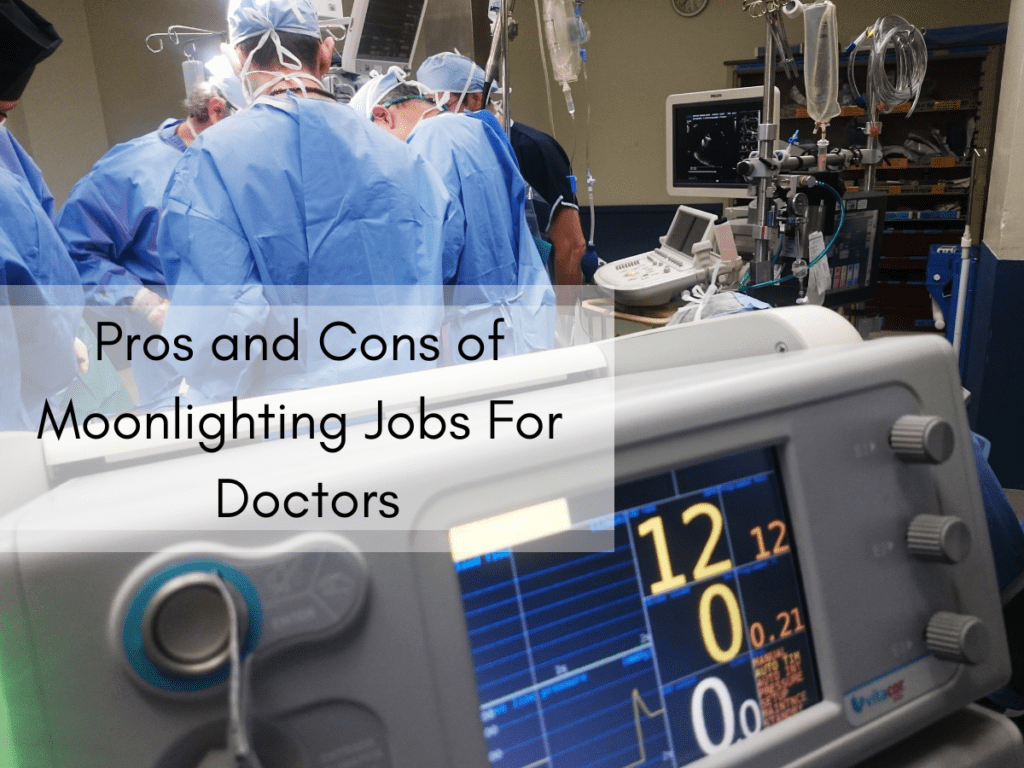Welcome to the brand new Doctor's Choice Placement Services, Inc. Website! As one of the nation's leaders in physician staffing, we strive to be on the cutting edge of the physician recruitment industry. On our website you will find thousands of updated physician jobs, an abundance of useful resources, links and the information you need to navigate today's competitive physician career market. Whether you are an employer seeking to hire a candidate, or a physician seeking employment, our highly experienced staff is ready to assist you.


Doctor’s Choice Celebrates 20 Years!
So we have hit the big 2-0. A pretty big milestone in this ultra-competitive industry…
We are absolutely honored to have been able to help so many of our Clients and Candidates over the years. Physician Recruitment after all is about changing lives not just for the Hospitals and Practices that are recruiting, or the Physicians that are searching for jobs, but also for the patients that will receive care as a result of the placements!
Over the years we have grown from a small boutique firm to one of the largest Physician Recruitment Firms in the US! We have received countless accolades throughout the past couple of decades including being honored by Forbes as a Top Recruiting Firm in the Nation on multiple annual Rankings lists.
As our Recruitment Team and Staff continues to grow, we also recognize the impact we have made with our own organization’s members and their families and we are excited to move ahead into the future knowing that when our clients engage our services and entrust our firm, they are in great hands.
We would like to thank our entire Recruitment Team and Staff. We would also like to thank all of the Hospitals, Groups, Health Systems, Private Practices, Recruitment Firms and Healthcare Providers that we have the privilege of working with each and every day!


Forbes recognizes Doctor’s Choice!
Forbes names Doctor’s Choice Placement Services, Inc. as one of America’s Top Recruiting Firms in 2020 and 2021!
We are extremely proud to be recognized by Forbes as one of the top Staffing Firms in America for two consecutive years, including a #4 ranking in the USA.
Visit our Forbes Company Profile at: https://www.forbes.com/companies/doctors-choice-placement-services/


Physicians who encountered professional physician recruiters before 1980 or so were rather uncommon. Physician search firms, on the other hand, grew in popularity over the next decade, to assist hospitals and medical organizations in finding harder-to-find specialists.
Physician recruitment demands and procedures have changed over time, as has the number of independent search firms. Several hundred companies now provide physician recruitment services across the United States. There is presently one physician recruiter for every two to three final-year residents, according to estimates.
With that in mind, here are the key points you need to know about physician recruitment firms.
A reputable physician recruitment service would try to strike a balance between your requirements and those of medical candidates. By recognizing crucial issues – both yours and the physicians’ – and giving quality information to both sides, a great recruitment agency minimizes unforeseen problems.
A great physician recruiting company makes sure that its sourcing tools are up-to-date and cutting-edge. One of such tools is a strong and credible online presence.
When someone searches online for a physician job in your area, your postings should appear on the first page of results. A good recruitment business, on the other hand, doesn’t stop there. Job boards, conferences, advertising, email campaigns, and phone campaigns are all part of its arsenal.
Working with a physician recruiter has several advantages, one of which is that they can give you the current best practices and employment insights. Hiring deadlines, the number of individuals who applied, contract offers, the interview procedure (phone and in-person), remuneration, and benefits are all examples of insights. They can also assist you in negotiating, depending on where you are in your career (if needed).
A strong network of physicians and employers is perhaps the most valuable asset in a physician recruitment firm’s toolkit. This network is where you can get the most up-to-date information on career opportunities and developments. These long-term collaborations provide you access to top candidates and cut down on your search time.
A reputable physician recruitment firm is well-versed in your position’s criteria and knows how to analyze job descriptions so that candidates are properly matched. They should also use recruiters who are experts in particular medical fields. The more a recruiter knows your industry, the more probable he is to locate the best prospects for your requirements.
A professional physician recruitment firm will go to great lengths to find the greatest applicants for your open positions. No matter how difficult an opening is to fill, you should be able to count on a full-scale effort from your recruitment business. A good recruitment business understands how to open doors for both physicians and employers.
They should endeavor to relieve the burden on medical directors, coordinate your job search team’s actions, and avoid duplication of effort. Your recruiting firm should take the initiative in forming a team. In a nutshell, a medical recruiting firm provides high-quality applicants.
A quality physician recruitment firm assesses candidates from all angles, including personality, character, expectations, and career aspirations, in addition to skill level. When you accept a candidate from them, you can be assured that he has been thoroughly vetted and is completely aware of all facets of the position.
These are some of the things that you should be looking for when looking to work with a physician recruitment firm — for both employers and physicians. However, the bottom line is that you must find a reputable recruitment firm that places good doctors with good employers and vice-versa. Luckily, such qualities exist with Doctor’s Choice Placement Sevices.
They are indeed the leading physician recruitment agency, and they provide a comprehensive range of physician recruitment services at competitive prices. Doctor’s Choice Placement Services is equipped to handle all areas of the physician recruitment process, thanks to a team of highly competent and experienced recruiters. Head on to their website (www.doctorschoiceplacement.com) to find out more.


To practice medicine you don’t need to be an MD. There are many ways, methods, and specializations that can be just as satisfying, if not more so – it all depends on your career goals. Two very promising career paths at the moment are a Nurse Practitioner (NP) and Physician Assistant (PA). And now, more than ever, these careers are highly sought after because patients desire for cost-effective, yet quality healthcare has created an extensive gap in the market.
But before you think either of the two will be suitable for your career ambitions it’s best to know enough about the career to make a reasonable decision.
Even though these two careers are fairly popular they are often confused because of their similarities. However, there are a number of fundamental differences that are important to consider before you decide which field to enter in to.
While the function of a Physician Assistant and a Nurse Practitioner are similar, how they carry out this function differs greatly. PA’s may work alongside physicians but many times work autonomously to create treatment plans to heal and treat specific diseases or conditions. Therefore their work is usually more medicine based and disease centered.
Nurse Practitioners, on the other hand, take on a different role. They usually specialize in one field, for example, geriatric care or feminine wellness. Their approach will also be far different as it’ll be a holistic, long term approach. They’ll often work alongside physicians to educate patients and give them the necessary information to assist in their own healing process.
Even with this difference, both the Physician Assistant and the Nurse Practitioner perform diagnostic tests, prescribe treatment and conduct patient assessments.
If you’d like to work independently, or you’re thinking about starting your own practice in the future, how much control you have (without the need for oversight from an MD) will be important.
Both Physician Assistants and Nurse Practitioners have some level of authority, however, this level of authority will depend on what state they’ll be operating in.
Physician Assistants have far greater autonomy than NPs. In all 50 states and the District of Columbia, they are able to prescribe medication and even order advanced imaging without the oversight of an MD. In some cases MDs may even require their expertise when diagnosing patients.
However, many Nurse Practitioner will still require the oversight of an MD to operate.
This has really changed recently, as over 20 states allow Nurse Practitioners to operate independently (in their area of expertise) without the need for MD oversight. A further 19 states require that Nurse Practitioners have an MDs oversight when prescribing medication.
This is a list of states that allow Nurse Practitioners to work autonomously. And should help you get started.
States That Allow Nurse Practitioners To Practice Without MD Supervision
Another significant difference between a Physician Assistant and a Nurse Practitioner is the academic route they take to acquire their expertise.
A Physician Assistant will need to have a bachelor’s degree before undergoing specified PA training. This should take 6 years to complete but could take up to 8 years.
However, a Nurse Practitioner will first need to become a registered nurse before embarking on additional education to become an APRN. This can take anywhere from 2 years to over 6 years to complete, and will likely include a specialization in a particular field of study.
This doesn’t take into account the hours of practice and continued education needed to recertify. In most states a Physician Assistant will need to recertify every 10 years and have accumulated 100 additional medical education credits.
Whereas, a nurse practitioner will need to recertify every 5 years, and have completed 1000 clinical hours and 75 hours of continuing education hours.
Salary and Job Prospects Of a Physician’s Assistant
As quality healthcare becomes more accessible, so does the need for PAs. In fact, Physician Assistants is one of the fastest growing careers in the US. With a growth of 38% between 2008 and 2018. Therefore PAs can expect to make between $102,000 and $106,873 annually. However, their income will be based on the number of hours they work, as the average hourly rate of a PA is $60.
Salary and Job Prospects of A Nurse Practitioner
Now that more patients are looking for holistic, affordable and specialized care NP’s are in greater demand. They can expect to earn between $72,420 and $205,740 annually. But this figure will depend on their state and specialty. For example, an anesthetist will earn more than their follow NP colleagues, and likewise will an NP in a state that allows greater autonomy.
Regardless of whether you decide to become a Nurse Practitioner or a Physician Assistant one thing both PAs and NPs have in common is their desire to help people be the healthiest they can possibly be.
Looking for a Physician Assistant or Nurse Practitioner Job?
Are you already a Physician Assistant or Nurse Practitioner and are searching for Physician Assistant Jobs or Nurse Practitioner Jobs in the US? Please contact us today and our experience Physician Recruiters will help you to find the right Physician Job!


The shortfall of doctors in general specialties in set to increase to about 10,000 in the next decade.
Before, it was primarily residents who went in search of extra work to supplement their income, but with increased demand for practicing physicians and the greater choice in the kind of work they’re able to do, many practicing physicians are making the most of moonlighting.
In recent years, of the thousands of physicians that were surveyed regarding why they were taking on additional work many cited supplementing their income as their biggest reason. Since it’s become easier to take on additional work – as clinics closer to home need extra pair of hands – doctors no longer need to travel to remote destinations to begin their shift.
So, whether you’re thinking of moonlighting to pay off debt, pay for your child’s college tuition or start saving for retirement, you need to consider the pros and cons involved.
Supplementing Your Income
The biggest benefit to becoming a moonlighter are the financial benefits you’ll experience from only a few hours of work. Many moonlighting physicians are easily able to supplement the shortfall in their full time job by taking on additional work after hours.
Networking For Future Positions
If you’re intending to make a change in your career soon, there’s really no better place to start networking than when you’re moonlighting. Firstly, you’ll get access to other a new working environment exposing you to a possible employers, references and even other physicians that could help you in your search. These networking opportunities may prove more valuable than the income aspect in the long run.
Gaining Experience
Although the financial benefits are touted as the most significant, many physicians mention the clinical experience they’re exposed to while moonlighting. Many of these experiences they would not have encountered in their full time role. And with the added experience they’ll find growth in their career far easier than their peers.
Demanding Workload
If you’re not intentional with the choices you make in regard to the position you’ll choose, you could become seriously overworked, very quickly. The added stress and pressure of a second job is one of the reasons moonlighting has been avoided by practicing physicians over time. However, as physicians are in demand the type of role they play and the nature of the work they’ll choose can be configured to suit their schedule.
Increased of Liability
As a moonlighting physician you’re not guaranteed protection against professional liability, as many secondary employers won’t take on the expense. In most cases you’ll need to purchase the correct liability insurance for yourself to safeguard you financially in the event you are liable or in the very least accused of being liable.
Less Free Time
You won’t have as much time on your hands as you did before, even if you only moonlight a few hours each week. That’s likely because you’ll need to recover after working a 12 hour shift in any facility and would need to sleep and recuperate for the day ahead. That burden on your schedule can make spending time with your family and friends a luxury when it once was a certainty.
Our job portal will help you sought through a variety of jobs based on your expertise, field of medicine and your specific state. Applying for these jobs is relatively easy and can be done through our site. If you’re short on time you may find that by signing up to get job alerts you’ll save plenty of time you would otherwise have spent scouring the site for jobs.
Looking for a Physician Job?
Are you already a Physician and are searching for Physician Jobs in Ohioor Physician Jobs in the US? Please contact us today and our experience Physician Recruiters will help you to find the right Physician Job!


There’s an element of prestige and honor in becoming a physician, that is afforded by very few other professions. Making these skills very in demand and this demand will only increase as more Americans get health insurance, the population ages and since a projected 117 million Americans live with chronic diseases they’ll need care and medical intervention.
By the time you’ve completed studying you’ll have joined one of the most distinguished professions in America. One of the highest paid professions as well. In fact, as of 2018 the average annual income of physicians spanning all specializations was $299,000.
Therefore, if you’re thinking of becoming a physician you’ll need to be committed to studying and completing several steps before you’re able to join the 1.1 million physicians in America. However, once you’ve completed the steps outlined in this post you’ll be joining one of the most lucrative and fulfilling professions in the world. Helping people live their best lives everyday.
But, before you dive in, you should determine whether you have the characteristics required to become a physician.
Emotional Stability
Breaking bad news to patients has to be one of the most difficult aspects of the job, but it is an aspect you’ll have to face regularly. To do your job as a doctor you’ll need to have levels of emotional stability that will see you through these times.
Stress Tolerance
Working on your feet all day in a physically and emotionally demanding job means you’ll have to be able to manage stress easily. If you’re thinking of going into medicine you should first determine how well you deal with stress and pressurized situations.
Compassion and Humility
If you want your patients and fellow doctors to be forthcoming you need to be compassionate and humble. This way you’ll always be approachable. Remember, that in the field of medicine you’re constantly learning, and if you’re open to learning you’ll make fewer mistakes and continue to grow in this profession.
Passion
Becoming a physician is not about the salary or the prestige but about improving the lives of others. The long hours and exhaustive work will be worth it if you have a passion for what you do.
Step 1: Complete A Bachelor’s Degree
Before you can apply to medical school you’ll have to complete your bachelors degree from a licensed and recognized university. There are no rules in place regarding what major to take before applying to medical school, however, popular majors include Biological Sciences, Social Sciences, Physical Sciences and Humanities.
Step 2: Pass The MCAT
A prerequisite to getting into med school is to pass the MCAT (Medical College Admission Test). Which is a standardized multiple choice exam that assesses your likelihood to succeed in a medical program. The Association of American Medical Colleges puts the average MCAT score at between 510 and 511 and an average GPA of 3.71 in successful applicants.
Step 3: Apply To Medical School
When you decide to apply for medical school is completely up to you, but most students apply in the summer of their junior year in college. That said, applying through AMCAS is the most efficient method as you’re able to select the Med schools you’re applying to and this centralized database will send your application to each school.
Step 4: Complete Your Training At Medical School
Medical school requires four years of full time study to complete, and is divided into two core elements. The first two years will be spent in labs and classrooms and the last two years you’ll gain practical knowledge of medicine under the watchful eye of a physician.
Step 5: Pass Part 1 and 2 of the United States Medical Licensing Examination (USMLE)
During your time at medical school you’ll be required to pass the USMLE if you want to practice medicine legally. This is a three part examination. Of which you’ll participate in the first exam in your first three years at med school, and the second part in your fourth year of med school.
Step 6: Find The Right Residency
In your final year, you’ll begin narrowing down your residency options based on what you plan on specializing in. You’ll submit an application for residency and will be matched with available residencies throughout the country.
Step 7: Graduate From Medical School And Begin Your Residency
Once you’ve graduated from Med school you’ll begin your residency, which takes between three and seven years to complete – depending on your field of medicine.
Step 8: Pass Part 3 of the United States Medical Licensing Examination (USMLE)
During your residency you’ll be required to take the final exam in the USMLE. This exam assesses a doctor’s ability to practice medicine safely and effectively.
Step 9: Earn The Necessary Board Certification and Get Your State License
Board certification isn’t necessary to practice medicine, however, it does show proficiency in your area of specialization – and is recommended. However, being licensed by the state is a requirement, hence you’ll need to get a state medical license in the state you’ll be practicing in.
Step 10: Apply For Jobs
After all this hard work you’ll finally be a practicing doctor, and will be able to apply for some very fulfilling jobs. You should find the right job portal to apply through, and be ready to find your dream job.
Looking for a Physician Job?
Are you already a Physician and are searching for Physician Jobs in Florida or Physician Jobs in the US? Please contact us today and our experience Physician Recruiters will help you to find the right Physician Job!